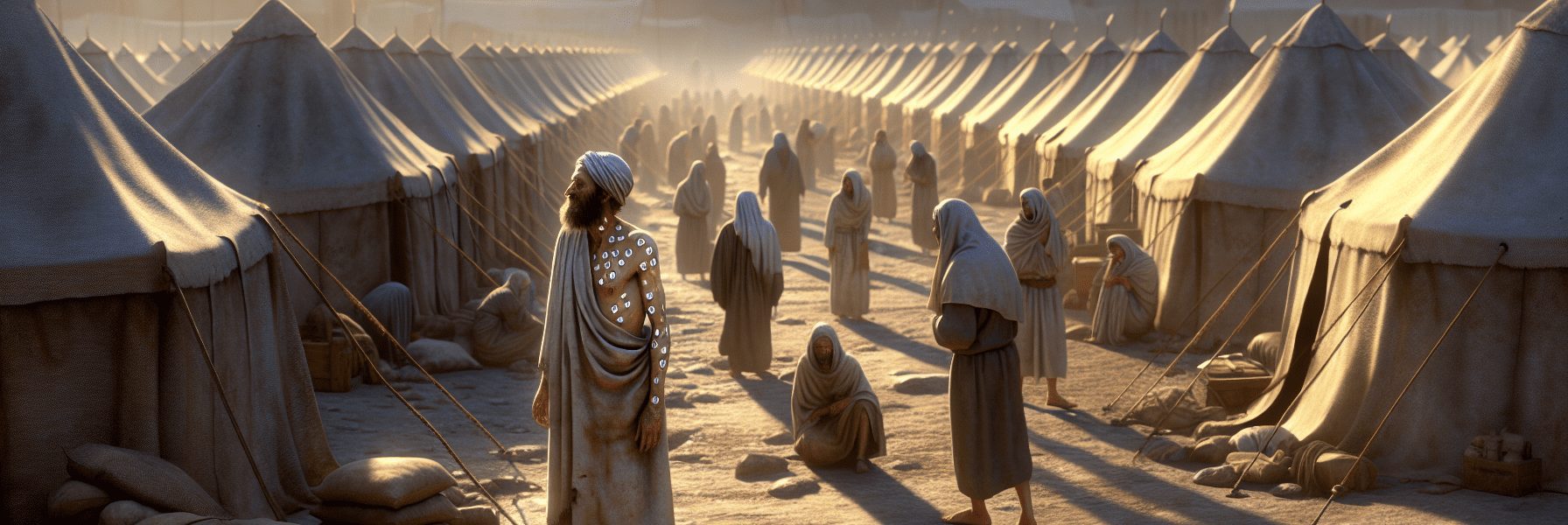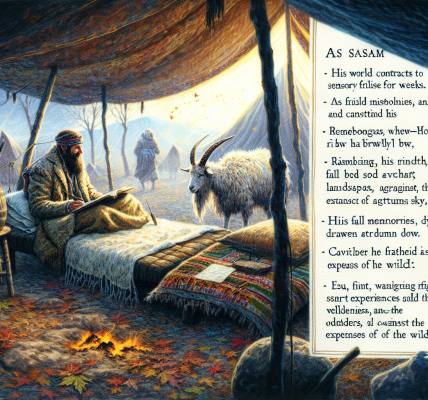**The Cleansing of the Leper**
The sun hung low over the Israelite camp, casting long shadows across the tents as the people went about their daily tasks. Near the outskirts of the settlement, a lone figure stood at a distance, his tattered garments hanging loosely from his thin frame. His face was wrapped in cloth, but the telltale white patches on his exposed skin marked him as unclean—a leper, banished from the community as the Law demanded.
For weeks, he had lived in isolation, crying out, *”Unclean! Unclean!”* whenever anyone drew near, lest they too be defiled. But now, as he examined his flesh, he noticed a change. The sores that had once been raw and festering had begun to heal. The white patches had faded. Could it be? Had the Lord seen fit to cleanse him?
With trembling hands, he made his way toward the camp, careful to keep his distance as he called out to the guards. Word spread quickly, and before long, a priest—dressed in his linen robes—emerged from the Tabernacle to investigate. The priest’s eyes narrowed as he studied the man’s skin from afar. There was no sign of the dreaded affliction.
**”Bring two live clean birds, cedar wood, scarlet yarn, and hyssop,”** the priest commanded. The people hurried to gather the items while the leper waited, his heart pounding with hope.
When all was prepared, the priest took one of the birds and slaughtered it over a clay pot filled with fresh water. The crimson blood swirled into the vessel, staining the water. Then, dipping the second bird—still alive—along with the cedar, scarlet yarn, and hyssop into the bloodied water, the priest sprinkled it seven times over the cleansed man.
**”You are clean,”** the priest declared, releasing the living bird into the open field, where it soared into the sky—a symbol of the man’s newfound freedom.
But the ritual was not yet complete. The man was instructed to wash his clothes, shave off all his hair, and bathe thoroughly. For seven days, he dwelled just outside his tent, still set apart, but no longer as an outcast. On the eighth day, he returned to the Tabernacle with offerings: two male lambs without blemish, a ewe lamb, fine flour mixed with oil, and a measure of oil.
The priest took one of the lambs and offered it as a guilt offering, placing its blood upon the man’s right ear, thumb, and big toe—consecrating him anew to the Lord. The oil was then sprinkled before the altar and applied to the same places where the blood had been, anointing him as one restored.
Finally, the sin offering and burnt offering were made, their smoke rising as a sweet aroma to the Lord. The priest pronounced the man fully cleansed, no longer a leper but a son of Israel once more.
Tears streamed down the man’s face as he fell to his knees in gratitude. The Lord had not forgotten him. The Law, though strict, was also merciful—a way for the unclean to be made whole again.
As he returned to his family, embraced by those who had mourned his absence, the camp murmured in awe. The God of Israel was holy, yes, but He was also a God of redemption. And for those who sought His cleansing, there was always a way back.




